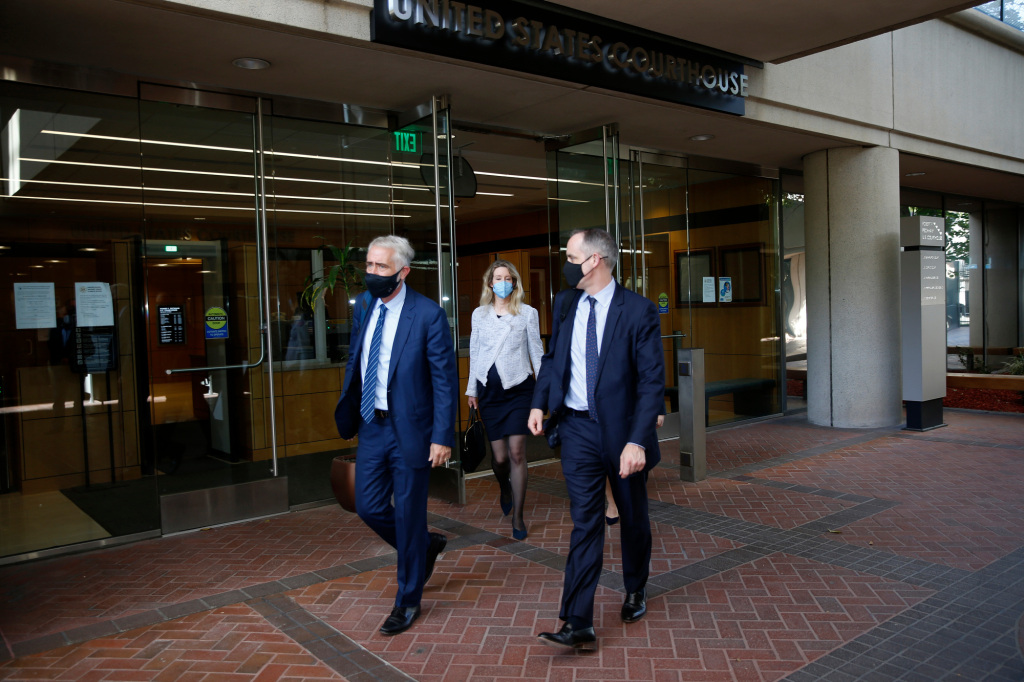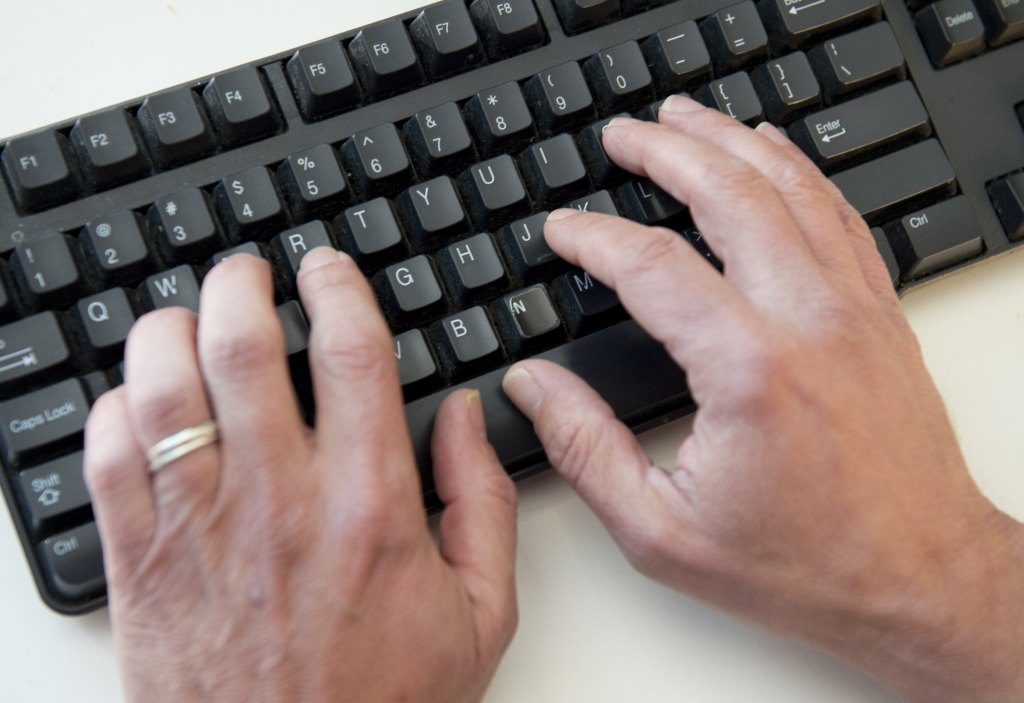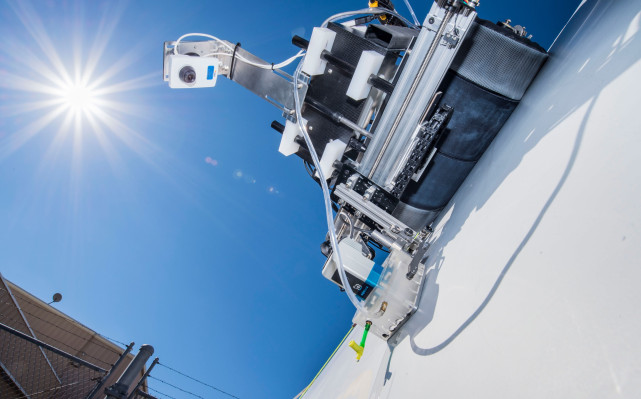Federal prosecutors in a court filing accused Theranos founder Elizabeth Holmes of trying to use an unusually long jury-screening questionnaire to produce a jury biased in her favor.
The proposed 41-page questionnaire Holmes’ legal team filed in court late last month “does more to potentially bias the jury in her favor than to aid in selecting a fair and impartial jury representing a cross-section of the local public,” the prosecution said in a recent filing.
Judge Edward Davila, presiding over Holmes’ case in San Jose U.S. District Court, has received dueling questionnaire proposals from her team and from federal prosecutors. Holmes’ lawyers had acknowledged their version was “lengthy,” but argued that was necessary given the circumstances of the case, including issues related to the COVID pandemic, and news coverage of Holmes and her failed Palo Alto blood-testing startup.
In a letter to prosecutors filed in court, her lawyers said many of their 112 questions, including those about employment, language fluency, marital status and “many other issues” were routine. However, they added, “The substantial media coverage of the matter and the continuing COVID-19 pandemic will obviously require some special inquiry.”
Prosecutors claimed in their filing last week that many of the queries in Holmes’ proposed jury-screening document, such as “Do you have investments?” and “Do you have health insurance?” along with questions about social media use, were “untethered” from pretrial publicity and the coronavirus pandemic.
The list of questions “appears designed … to isolate jurors that fit a certain profile she considers favorable,” prosecutors charged. “Tellingly, the two main rationales (Holmes) asserts for justifying such an excessive questionnaire — pretrial publicity and COVID-19 — relate to approximately 14 out of 112 questions.”
Holmes, pregnant and expecting a baby next month, is facing a dozen felony fraud counts in connection with the startup she founded in 2003 after she dropped out of Stanford University. The federal government alleges Holmes and her co-accused, former Theranos president Sunny Balwani, bilked investors out of hundreds of millions of dollars. Prosecutors claim the two defrauded patients and doctors with false claims that the company’s machines could conduct a full array of tests using just a few drops of blood, when they knew the technology had accuracy and reliability problems. Holmes and Balwani — who is to be tried separately — have denied the claims.
In a court filing last month, Holmes’ legal team cited “vast” and “varied” news coverage, including from this news organization and dozens of other local and national publications, along with a forthcoming TV drama and a movie, plus a book, documentaries and opinion pieces going as far back as 2015, that they say threaten Holmes’ ability to have a fair trial before an impartial jury.
“Media coverage describes her as a “fraud,” “fraudster,” “con artist,” “disgraced Theranos founder,” “scam artist,” and a “raging psychopath,” her lawyers argued in a filing. Media coverage has also featured information presented in pre-trial proceedings that Davila has ruled the jury won’t be able to see, her team said.
The government asserted that its proposed nine-page questionnaire, with 51 questions, was sufficient for jury selection in a high-profile case affected by a pandemic. Prosecutors’ proposed queries about news consumption include, “Have you heard or read anything about this case before today?” and, “Is there anything about the nature of the charges and/or what you have heard or read about this case that would affect how you judge the facts of this case or the person accused?” The prosecution said that questionnaire aligns with “typical practice” and was drawn largely from recently used questionnaires that address COVID issues.
Prosecutors agreed with Holmes’ lawyers that jurors should be drawn from a larger-than-usual jury pool, with the aim of increasing the number of “potential jurors who have never heard of Theranos or Elizabeth Holmes.”
Holmes’ trial, delayed three times because of the pandemic and procedural matters, is scheduled to begin Aug. 31. The trial is expected to run Tuesdays, Thursdays and Fridays through December 17, according to a filing last week by Holmes’ legal team. She faces maximum penalties of 20 years in prison and a $2.75 million fine, plus possible restitution, the Department of Justice has said.










